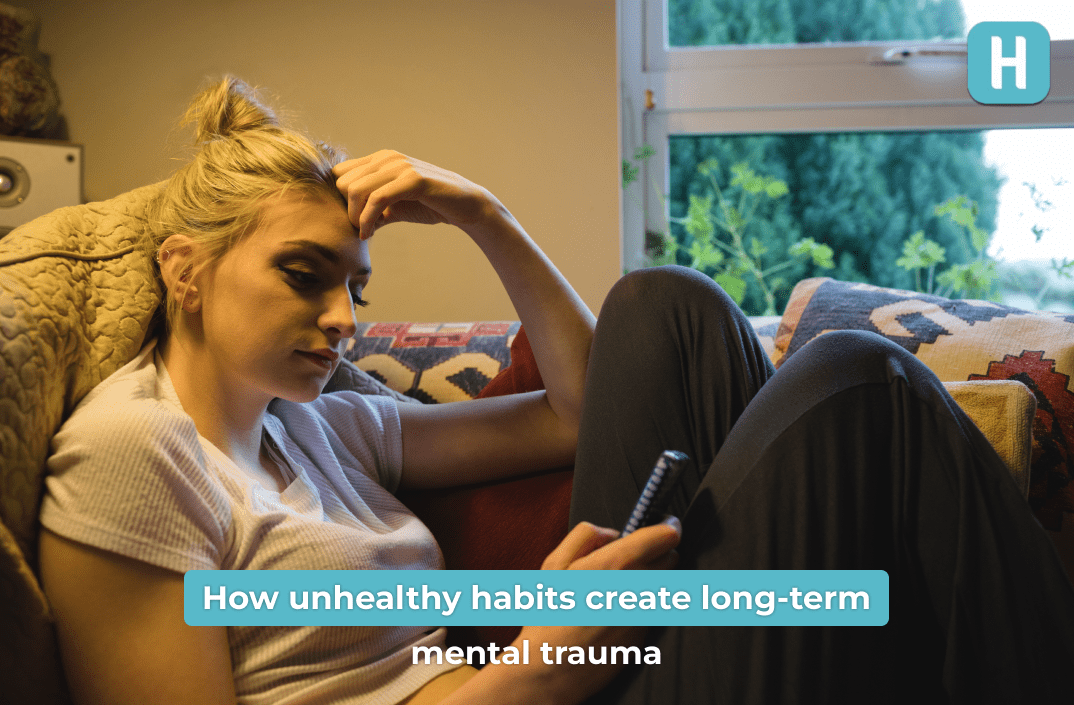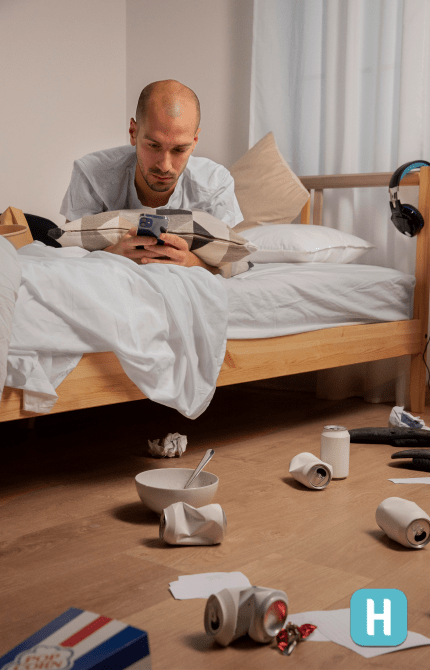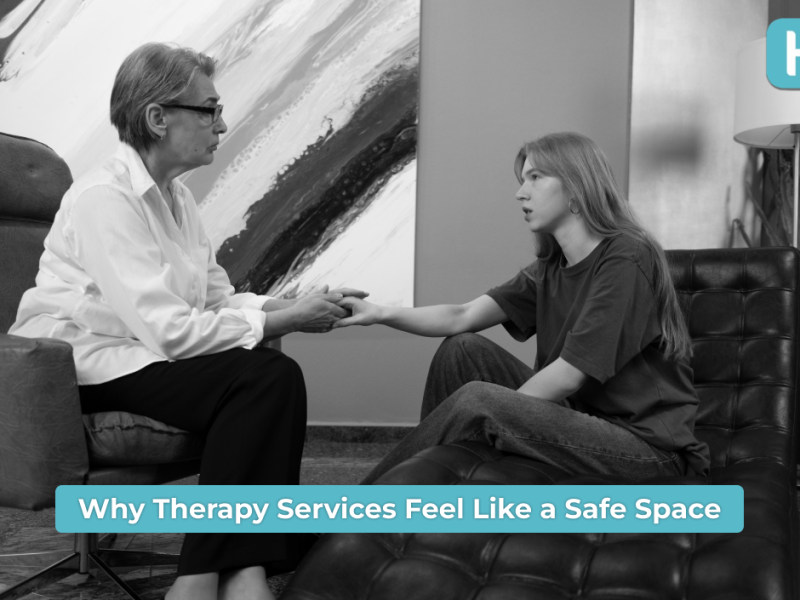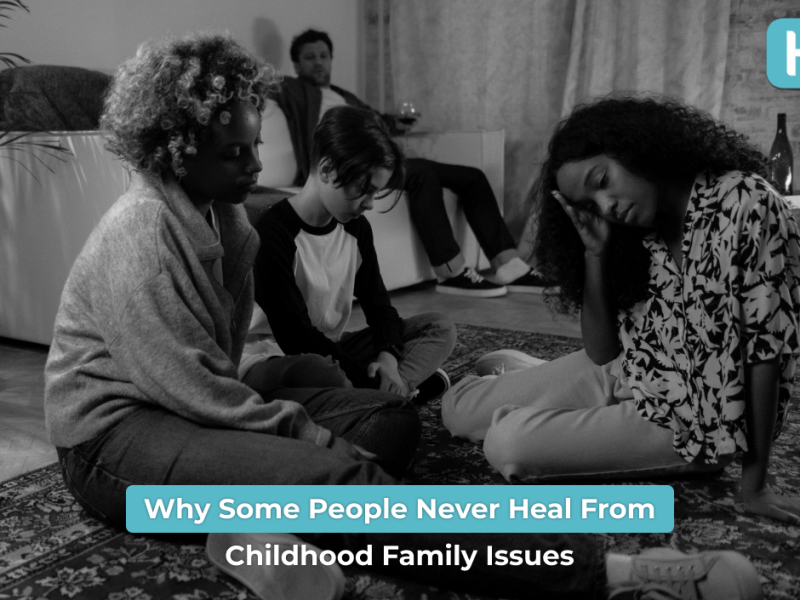Let’s be honest for a moment.
We all have habits, some good, some not-so-great. But what happens when those not-so-great habits slowly become your “normal”? What if those tiny decisions, like skipping meals, doom-scrolling until 2 a.m., or living off caffeine and chaos , aren’t just unhealthy… but quietly building something deeper and scarier?
We’re talking about mental trauma.
It’s not just about the big ones but something much more sneaky and subtle that can happen to anybody: coming through the back door-trivial daily habits, routines, and behaviors that feel harmless but eventually wear us down.
Herein, dear readers, we shall analyze how unhealthy habits create chronic trauma in the mind and get our trigger buttons pressed to recognize, label, and heal such hidden trauma.

1. It All Starts Subtle: The Slippery Slope of “Harmless” Habits
Let’s say you skip breakfast most days.
- You promise yourself you’ll eat later, but you don’t.
- You start getting headaches, you’re cranky, and your concentration tanks. But you power through with coffee and sugar. Again. And again.
That’s not just poor nutrition, that’s a seed.
Unhealthy habits like skipping meals, avoiding rest, or ignoring social connections might not seem like a big deal. But when they become daily behavior, they start affecting the brain. And slowly, you start feeling off, but you can’t quite put your finger on why.
That’s how unhealthy habits and mental trauma often begin. Quietly. Slowly. But deeply.
2. The Brain Remembers: Habits Shape How We Feel and Function
You’ve probably heard the phrase “neurons that fire together, wire together.” It’s not just a neuroscience flex, it’s the truth. Our brains literally learn habits. The more we repeat them, the harderwired they become.
So if your habit is stress-eating every night, your brain starts associating anxiety with food.
If your habit is avoiding conflict, your brain starts panicking at even the thought of honest conversations.
These aren’t just coping mechanisms. They’re mental blueprints. And when they’re based on unhealthy patterns, they build toward emotional trauma.
One small habit repeated over months or years can shape your self-esteem, decision-making, and even relationships. It becomes your default mode, a nd sometimes, your silent suffering.
3. Food, Mood, and the Forgotten Link
Let’s talk food. Not the diet kind, just the feeling kind.
It’s wild how little we talk about the effects of bad habits on mental health when it comes to what we eat. Fast food and sugary snacks are, as we all know, and another example would be energy drinks, really everywhere. And they seem to be our way out of emotional stress, sadness, or dysphoria.
This isn’t just bad nourishment for the body, but when someone healthy eats it all, it may cause adverse effects on mental health, too.
One of the most jaw-dropping facts that we flashed to our community was: Depression caused by a poor diet. Yes, really. Diets low in omega-3s and deficient in B12 and magnesium have been linked directly to higher rates of depression and anxiety.
A meal turns out to be really convenient, but probably followed by this cycle:
Low energy → poor diet → mood crash → repeat.
And before you know it, you’re not just tired, you’re emotionally exhausted. You’re not just moody, you’re dealing with mental trauma that built up from chronic neglect of your body’s needs.
4. Gaming, Screens, and the Trauma We Don’t See
we live online. It’s our workspace, hangout zone, entertainment hub, and escape hatch. And for young adults, especially, gaming addiction trauma in young adults is a conversation we can’t ignore.
Gaming itself isn’t evil. For many, it’s a creative, community-filled space. But like any habit, it can turn toxic when it becomes a way to numb out rather than connect.
When someone spends 8–10 hours a day gaming to avoid real life, emotions, or stress, they’re not just playing. They’re hiding. And that emotional suppression can snowball into serious trauma.
One young person shared:
“Gaming was my therapy until it wasn’t. I missed classes, stopped talking to friends, and one day realized I hadn’t felt happy in months.”
That’s the thing: when digital habits replace emotional processing, the mental trauma is real, even if it’s invisible.
5. Sleep Is Not a Luxury, It’s Emotional Survival
Raise your hand if your sleep routine is a disaster.
(We’ll wait while you yawn.)
It’s easy to joke about late nights, Netflix marathons, or doom-scrolling under the covers. But sleep is where the brain cleans up. It processes the day. It stores memories. It balances your emotions.
Skipping sleep once in a while is okay. But when does it become a pattern? That’s another story.
Poor sleep habits have been linked to:
- Increased anxiety
- Mood swings
- Poor decision-making
- Memory issues
- Long-term depression
And yes, emotional trauma.
If you do not sleep timely, your brain stays in fight-or-flight mode. You’re always on edge, always tired, and always feeling like life is just too much. That’s not laziness. That’s neurological overload.
6. The Inner Voice: How Habits Shape Self-Worth
Let’s talk about something deeper.
The voice in your head.
Your habits shape how that voice sounds. If your habit is procrastination, it might say, “You’re always behind.” If your habit is people-pleasing, it might say, “You’re not enough unless you’re useful.” If your habit is avoidance, it might say, “You can’t handle this.”
That voice? Over time, it creates your emotional reality. It feeds anxiety, insecurity, and sometimes even self-hate.
This is why mental trauma from unhealthy habits isn’t always obvious. It’s not just about what you do, it’s about what you come to believe about yourself.
7. It Doesn’t End at the Mind, The Body Carries the Trauma Too
Ever had a stomachache before a stressful call? Tight chest during an argument? Headaches that hit only on Sunday nights?
That’s not random. That’s your body remembering.
Trauma, even the kind built through small, unhealthy habits, shows up in the body:
- Chronic fatigue
- Digestive issues
- Tension
- Hormonal imbalances
- Weakened immunity
Your body is talking. And if we keep ignoring it, those whispers become screams.
Many people spend years treating physical symptoms that are actually emotional trauma in disguise. They don’t need another pill; they need space to feel, heal, and break toxic cycles.
8. Breaking the Loop: Tiny Changes, Big Healing
Here’s the good news: you don’t have to change everything overnight.
Healing from the effects of bad habits on mental health starts with awareness. It starts with asking:
- What habit makes me feel worse, not better?
- What am I trying to avoid with this routine?
- Where am I choosing comfort over care?
From there, you can start replacing one habit at a time.
Sleep 30 minutes earlier.
Add one real meal a day.
Take one hour offline.
Say one kind thing to yourself.
Healing doesn’t happen with a dramatic detox. It happens in the daily, consistent choice to treat yourself like you matter. Because you do.
9. Why We Don’t Talk About Habit Trauma Enough
Here’s the hardest part: people don’t always take you seriously when you say you’re struggling from “just bad habits.”
But you know what? Mental trauma isn’t just about childhood or abuse or tragedy. It can also come from constant self-neglect, internalized stress, and years of pretending you’re okay when you’re not.
We need to normalize conversations around unhealthy habits and mental trauma. We need to validate the experiences of people who are slowly unraveling from the inside, without a “big reason.”
Because trauma doesn’t always shout. Sometimes, it whispers:
- “You don’t deserve better.”
How Helply Can Help: Because You Deserve Real Support
Reach out before you hit rock bottom. Don’t subject your pain to justification. If you are feeling off, feeling stuck, drained, or numb, you have the right to request support.
There are really effective solutions and real down-to-earth conversations with real people who understand. Whether you’re dealing with gaming overload, emotional burnout, or the slow wounding of self-neglect, we offer support.
Let’s rewrite the story.
Let’s create healing habits and not harmful ones.
You are not broken; you are simply tired of surviving.
Helply: mental wellness wherever you are.
Helply: Mental wellness that meets you where you are.
FAQs
Q: Can simple habits really cause mental trauma?
A: Yes. Going through repeated cycles of unhealthy habits, from ignoring sleep to nutrition to emotional needs, may end up rewiring the brain for optimum long-term trauma. This process is the antithesis of drama; it is about daily patterns.
Q: How do I know I’m living with emotional trauma because of habits?
A: You look for signs like tiredness, low self-esteem, irritability, anxiety, or feeling sluggish in life. If habits seem comforting with an edge of destructiveness, a check-in is required.
Q: Is depression from poor diet a real thing?
A: Hell, yeah! A poor diet lacking lots of nutrients, including Omega-3s, iron, and vitamins, increases the risk of depression. Food has more to do with your mood than most people actually recognize.
Q: What are the effects of gaming addiction on trauma in young adults?
A: These would affect areas of learning, social interaction, emotional health, and so on. In cases where gaming is used to escape reality, trauma may follow, especially when it substitutes for genuine connections or emotional expression.
Q: Where could I seek help to defeat this cycle?
A: The place to start would be safe spaces like Helply. We provide content, community, and coaching designed to help you understand your habits, rebuild self-worth, and begin the road to healing free of shame.



